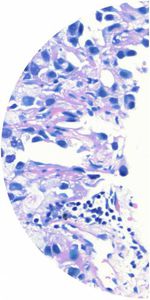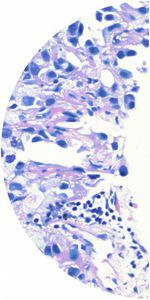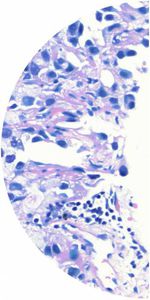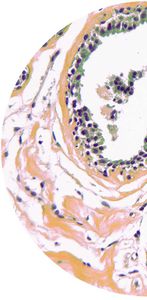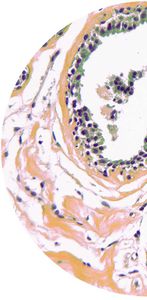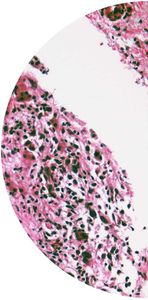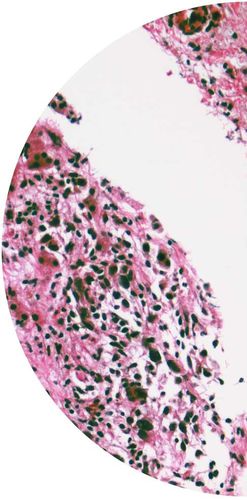
Glioma test kit GLIOCAN™oncologyfor precision medicinefor BRAF mutations
Add to favorites
Compare this product
fo_shop_gate_exact_title
Characteristics
- Applications
- glioma
- Application field
- oncology, for precision medicine
- Tested parameter
- for BRAF mutations, for ATRX mutations, for TERT mutations, for IDH1 mutations, for IDH2 mutations, for TP53 mutations
- Sample type
- FFPE tissues
Description
Primary central nervous system (CNS) tumors are a group of tumor types originating from the brain or spinal cord tissue, and can be differentiated from metastatic brain tumors that spread to the brain from a tumor developed in another part of the body. Although certain genetic syndromes may increase the risk of developing CNS tumors, the causes of most adult primary CNS tumors are still unknown.
CNS tumors can be benign or malignant. Current standard treatment options consist of surgery, radiation therapy and chemotherapy. Recent genome-wide studies of malignant CNS tumors have unveiled molecular biomarkers that may influence clinical treatment decision-making – some of which have been incorporated by the World Health Organization (WHO) into Classification of Tumors of the Central Nervous System in 2016. These tumors were classified based on both histological appearance and molecular parameters.
Targets 12 key molecular biomarkers in glioma
Comprehensive testing of genetic alterations such as diagnostic, prognostic or predictive biomarkers in glioma, including 1p/19q co-deletion, mutations in ATRX, BRAF, IDH1, IDH2, TERT and TP53 genes
Facilitates tumor classification and grading
Predicts efficacy and toxicity of chemotherapy based on associated genetic biomarkers
Optional MGMT promoter methylation test
WHO IS IT FOR
Newly diagnosed glioma patients seeking precision medicine
SAMPLE TYPES
Tumor tissue (FFPE block/slides, or frozen tissue)
Fine needle biopsy
Catalogs
No catalogs are available for this product.
See all of Geneseeq‘s catalogsRelated Searches
- Assay kit
- Blood assay kit
- Plasma assay kit
- Molecular test kit
- Oncology test kit
- Tissue detection kit
- Genetic test kit
- Oncology test kit
- Genetic mutation detection kit
- FFPE tissues assay kit
- Cerebral test kit
- BRAF gene test kit
- Colorectal cancer test kit
- Lung cancer detection kit
- Genomic test kit
- Genomic DNA detection kit
- BRAF mutation detection kit
- NGS sequencing assay kit
- KRAS mutation detection kit
- Bone marrow assay kit
*Prices are pre-tax. They exclude delivery charges and customs duties and do not include additional charges for installation or activation options. Prices are indicative only and may vary by country, with changes to the cost of raw materials and exchange rates.


